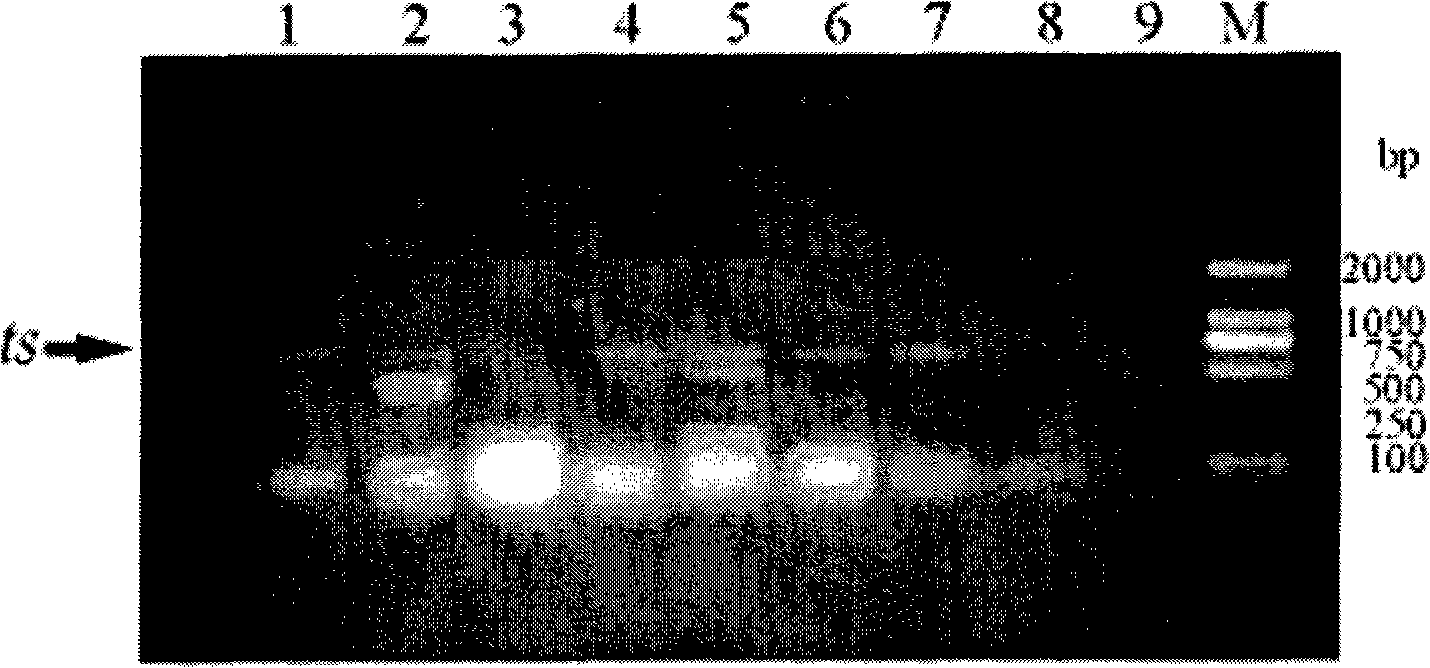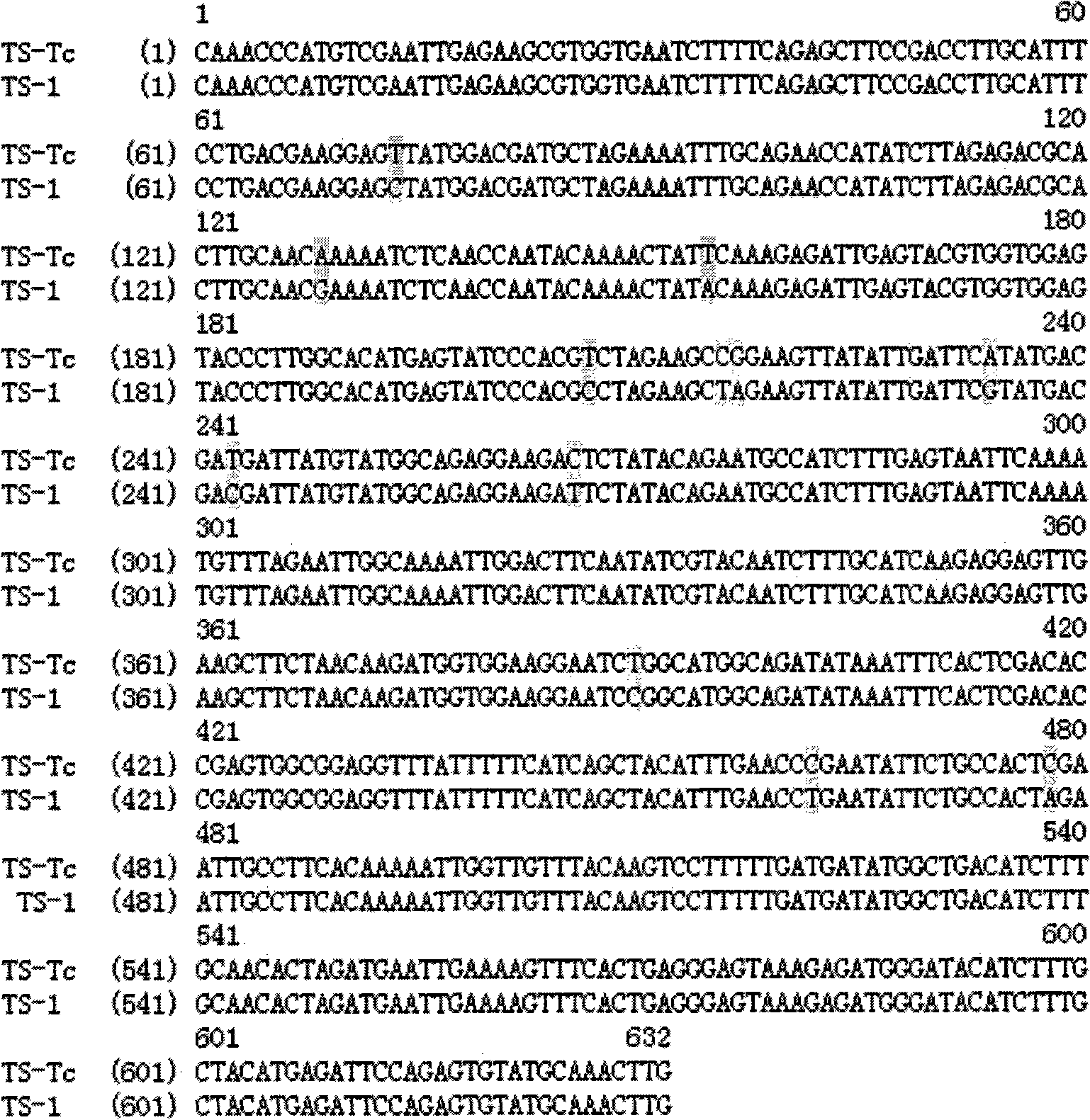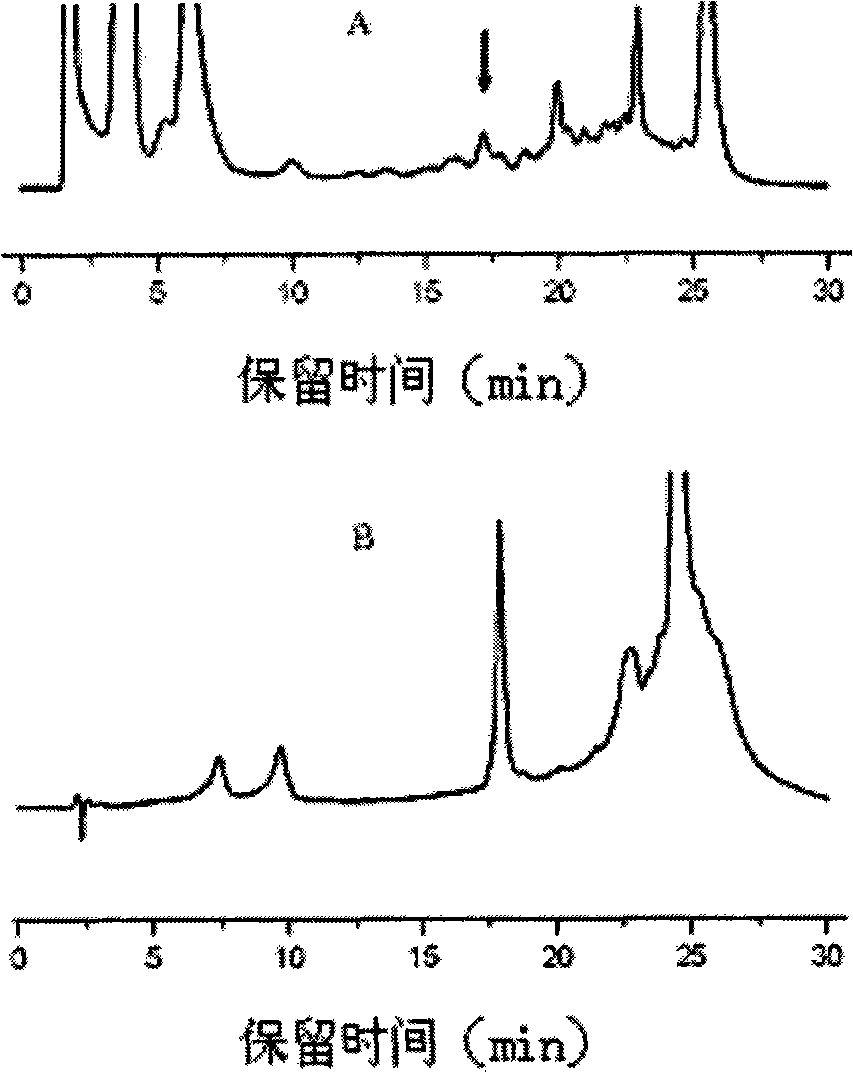Molecule identification method for taxol-producing endophytic fungi in yew
An endophytic fungus and paclitaxel technology, applied in the field of molecular biology, can solve the problems of low sensitivity, complicated extraction process of paclitaxel, difficult detection by TLC, etc.
- Summary
- Abstract
- Description
- Claims
- Application Information
AI Technical Summary
Problems solved by technology
Method used
Image
Examples
Embodiment 1
[0033] PCR detection of paclitaxel produced by endophytic fungi isolated from Taxus media
[0034] 1. Culture of mycelium
[0035] Put the isolated and purified endophytic fungus slant strains stored in a refrigerator at 4°C for activation at 28°C for 24 hours, pick the hyphae of the strains from the slant test tubes and connect them to the PDA solid medium plate, and culture them at a constant temperature of 28°C for 2-3 days. Inoculate 1cm with an inoculation shovel 2 The left and right plate bacteria were connected to the YPS liquid medium and mashed. Culture at 28°C with shaking at 120rpm.
[0036] 2. Mycelium Preparation
[0037] Centrifuge the cultured mycelium at 10,000×g for 10 min, remove the supernatant, then add PBS buffer solution to wash the precipitate for 3 times, and finally grind the washed mycelium into powder with liquid nitrogen.
[0038] 3. Mycelia Genomic DNA Extraction
[0039] Add 65°C preheated extraction buffer to 1g of the material, incubate in ...
Embodiment 2
[0073] Using HPLC-MS to further analyze whether endophytic fungi produce paclitaxel
[0074] 1. Experimental method:
[0075] (1) Extraction and separation of paclitaxel and taxanes
[0076] Inoculate endophytic fungi (preserved on PDA slant) isolated from Taxus chinensis in 250mL Erlenmeyer flask seed solution, shake at 25°C for 3 days, transfer to 500mL Erlenmeyer flask fermentation broth at 10% inoculum size, shake at 25°C After culturing for 15 days, mycelium and supernatant were obtained by centrifugation. The fermentation broth was centrifuged, and the supernatant was rotatably evaporated at 55°C to one tenth of its volume, then an equal volume of ethyl acetate was added for extraction for 3 to 5 hours; after precipitation, an equal volume of ethyl acetate was added for extraction for 3 to 5 hours; the supernatant and Each precipitate was extracted 3 times, and the ester layers were combined respectively. The ester layer was rotary evaporated to dryness at 45°C, respe...
PUM
 Login to View More
Login to View More Abstract
Description
Claims
Application Information
 Login to View More
Login to View More - R&D
- Intellectual Property
- Life Sciences
- Materials
- Tech Scout
- Unparalleled Data Quality
- Higher Quality Content
- 60% Fewer Hallucinations
Browse by: Latest US Patents, China's latest patents, Technical Efficacy Thesaurus, Application Domain, Technology Topic, Popular Technical Reports.
© 2025 PatSnap. All rights reserved.Legal|Privacy policy|Modern Slavery Act Transparency Statement|Sitemap|About US| Contact US: help@patsnap.com



